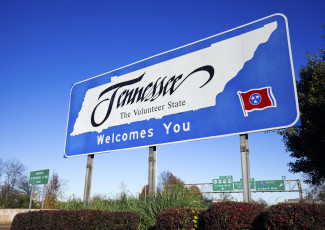Preparing for Oregon Promise Students
By Sonya Stinson
January 21, 2016
The state is getting ready for an influx of students who will be attending community college tuition-free. One college is putting emphasis on the first-year experience.
Editor’s Note: Both Oregon and Tennessee are expecting or have already seen an increase in students because of tuition-free community college. In this two-part series, we take a look at how each state is focusing on the students’ first year.
Blue Mountain Community College (BMCC), in Pendleton, Oregon, is anticipating an enrollment bump of as much as 10 percent next fall from the state’s new Oregon Promise program, which offers a tuition-free community college education. The program’s statewide enrollment is expected to reach 7,000, nearly 20 percent of all high school graduates in the class of 2016. The number would also amount to a nearly 25 percent increase in community college enrollment for new high school graduates.
BMCC serves an area that spans 18,000 square miles, with many of its students involved in distance learning. That means administrators will have their work cut out for them when it comes to absorbing the new influx of Oregon Promise students and helping them thrive, says the college’s president, Cam Preus.
“The challenge of a 10 percent increase across the territory is capacity — having enough faculty who are available for the courses, having enough advising, financial aid and all the other internal supports and student supports that would be required to ensure that students don’t just have access, but that they have success as well,” she says.
The importance of the first year
To accommodate the increase, administrators and faculty will have to tweak the college’s fall orientation event and train additional success coaches. They are also considering making the first-year-experience course a requirement for all incoming students, rather than a “highly encouraged” elective, as it is now.
“That’s additional capacity, and conversations with our faculty are not yet at a place where we’ve confirmed that,” Preus says. “But that’s the kind of thing we are thinking about.”
The first-year-experience course provides students with tips on things like managing time; accessing campus resources; taking tests; reading for comprehension; and thinking critically. Some of the curriculum is tailored to each student’s major, Preus says.
Preus spoke recently with a state legislator who plans to introduce a bill that would authorize the purchase of a ready-made course curriculum.
“We have a special session that happens in February,” Preus says. “I think the legislator is ready to drop that bill that would help all 17 colleges in Oregon have access to this particular resource.”
Thinking about tracking and beyond
Under the Oregon Promise, eligible students get all but $50 of their tuition covered each term for up to two years. Those who already receive enough aid from federal grants to pay for tuition will receive a $1,000 award from the state to cover books, fees and other expenses. To remain in the program, students must maintain a grade-point average of 2.5 or above.
While she has yet to receive a specific directive from Oregon Promise administrators, Preus says she knows it will be important to track the academic progress of participating students. BMCC administrators have already decided to attach a special marker to those students’ records to make the tracking more efficient.
“The institution is going to want to know who these people are and how well they have fared, what kind of support they generally got — and was that sufficient for persistence and retention?” Preus says.
In promoting the Oregon Promise, BMCC has focused a lot of its outreach on high schools with diverse student populations. Preus is especially hopeful about the potential for the program to make college education more accessible and affordable for students of color, who account for a growing percentage of area high school graduates.
“A real benefit is that students that previously didn’t see themselves as college material, or didn’t see themselves as ever being able to afford college, will see that it is possible,” she says.
Come back tomorrow to read more on the topic and learn how Tennessee Promise students are put on a path to success.
Photo courtesy of Blue Mountain Community College






